
Community healing walks organized by Native American environmental activists are drawing increased attention to the high rates of asthma, cancer and environmental racism experienced by neighbors of the five large oil refineries in the northeast San Francisco Bay area.
“I have lived in Richmond in the shadow of the Chevron refinery for many decades now, raising my children in this refinery town,” said Alison Ehara-Brown, one of the organizers of the Refinery Corridor Healing Walks. “When our children have high asthma rates, when our family members are getting cancer and collapsed lungs at an early age … then we know that we are living in a culture that needs healing.”
The Refinery Corridor Healing Walks bring Richmond residents, environmental advocates and residents from the greater Bay Area together to discuss the health and environmental impacts of five colossal refineries in the East Bay. These refineries are tucked away from the high-tech buzz and allure of Silicon Valley and San Francisco.
The healing walks are organized by the San Francisco Bay Area chapter of Idle No More, one of the largest grassroots movements of Aboriginal peoples in Canada calling for a peaceful revolution for affirming indigenous sovereignty and protection of land and waterways. Ehara-Brown takes part in the group as an activist with part-Mohawk ancestry.
There are four healing walks organized this year by Native American environmental advocates; these walks traverse refineries lining the East Bay, crude-by-rail tracks, neighborhoods, bridges and the bay.
“We want to bring to the mainstream this lexicon of ‘refinery corridor’ so that we understand what some communities experience daily living next to these toxic sites,” said Pennie Opal Plant, a longtime Native-American environmental justice advocate who was inspired by the tar sands healing walks in Alberta and had a vision to start the walks in the East Bay.
The third healing walk, organized June 20, began with a morning water ceremony led by Native-American elders in the historic town of Benicia, California’s former state capital, which is home to Valero refinery. The walk included interfaith leaders from the Jewish, Buddhist and Christian traditions emphasizing the need to transition to renewable energy and demanding accountability from big oil to community health and safety.
“I am here because I see systemic injustices, especially against people of color,” said Reverend Will McGarvey of the Interfaith Council of Contra Costa County. “Richmond and Pittsburg have some of highest asthma rates. Members of my own congregation are at risk with the pollution that’s prevalent here.”
The 12-mile walk began from Benicia and ended in the city of Rodeo, which is home to a Phillips 66 refinery, the first major oil refinery in the Bay Area. The Board of Supervisors approved an expansion of the refinery, alarming environmental advocates. The refinery sits on an earthquake liquefaction zone, and local residents are worried that the expansion plans could exacerbate air pollution and public safety.
An oil boom from Tar Sands and Bakken crude in North Dakota has precipitously increased crude-by-rail operations in the United States, and Bay Area residents, particularly those living by the refineries, are worried about bomb trains – named so because of the high combustion fuel they carry and the risks they pose – passing through their communities.
“Why should any community be a sacrifice zone for the fossil fuel industry? Would those making these types of decisions allow their families to live in these sacrifice zones? If not, then no one should live in them,” concluded Opal Plant.

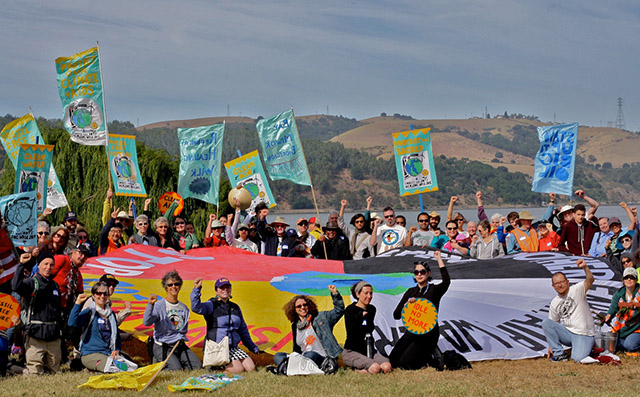

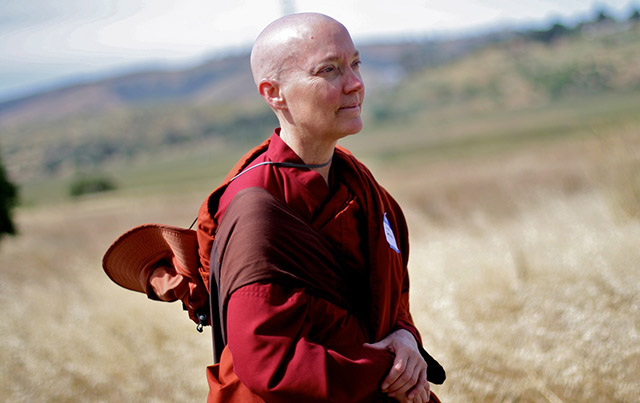
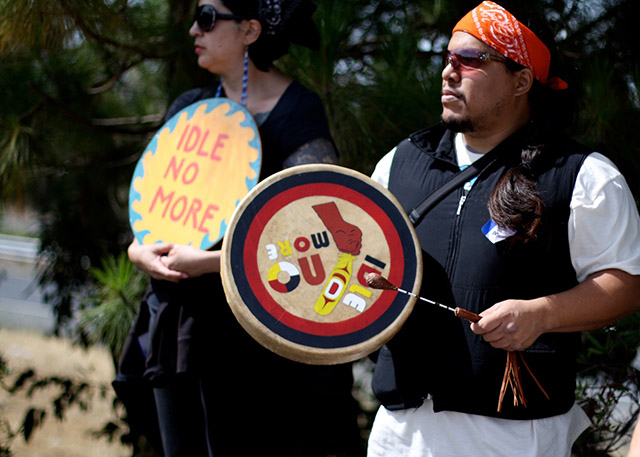
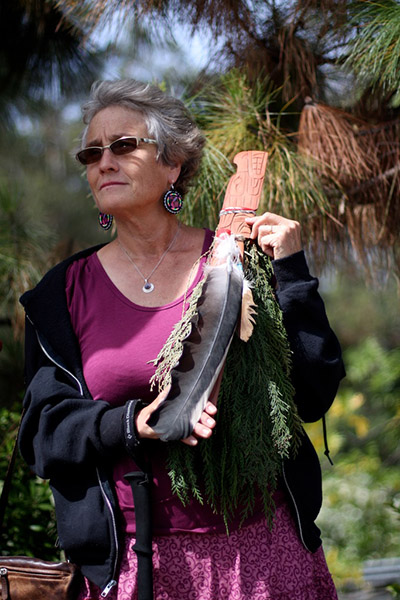 “We need to heal from the ways we have been part of destroying our beautiful earth,” said Alison Ehra-Brown, one of the organizers of the healing walks. “We need to heal from the hurt, which has clouded our minds as humans and allowed the destruction of communities and sacred sites to happen. We need to bring healing to our land, our air, our water and our hearts.” (Photo: Rucha Chitnis)
“We need to heal from the ways we have been part of destroying our beautiful earth,” said Alison Ehra-Brown, one of the organizers of the healing walks. “We need to heal from the hurt, which has clouded our minds as humans and allowed the destruction of communities and sacred sites to happen. We need to bring healing to our land, our air, our water and our hearts.” (Photo: Rucha Chitnis)

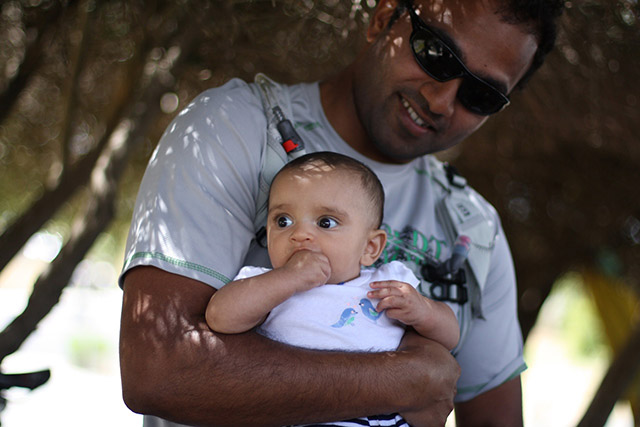
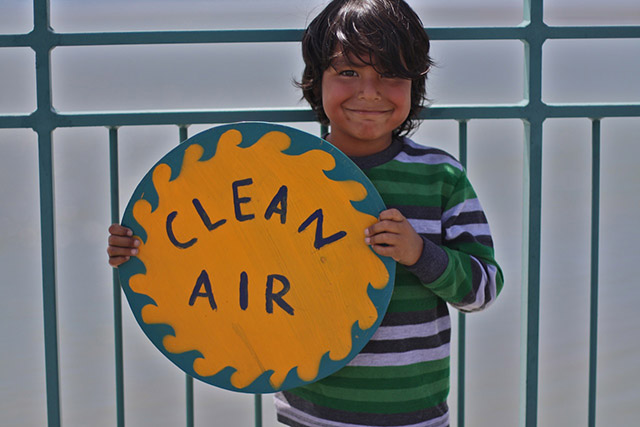
 Chaitanya Diwadkar, member of Alliance of South Asians Taking Action, waved a Clean Water and Energy flag at the ongoing vehicular traffic on the Carquinez Bridge. “As a privileged South Asian immigrant, who lives off resources that were stolen from Native people in the Americas and all around the world, it is a moral obligation to support in any way possible the courageous efforts of people whose ancient wisdom is humanity’s only hope against a certain extinction,” he said. (Photo: Rucha Chitnis)
Chaitanya Diwadkar, member of Alliance of South Asians Taking Action, waved a Clean Water and Energy flag at the ongoing vehicular traffic on the Carquinez Bridge. “As a privileged South Asian immigrant, who lives off resources that were stolen from Native people in the Americas and all around the world, it is a moral obligation to support in any way possible the courageous efforts of people whose ancient wisdom is humanity’s only hope against a certain extinction,” he said. (Photo: Rucha Chitnis)
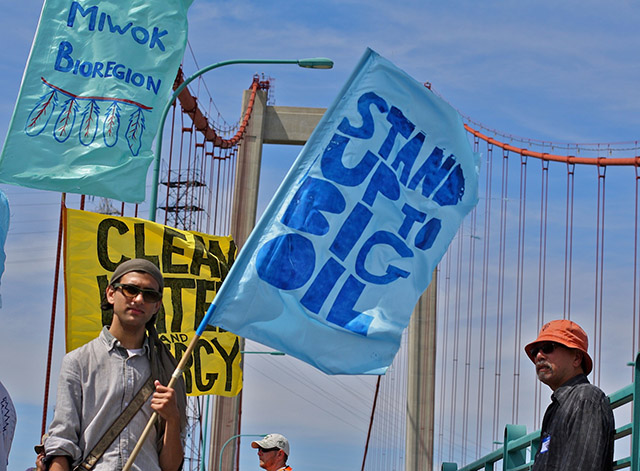
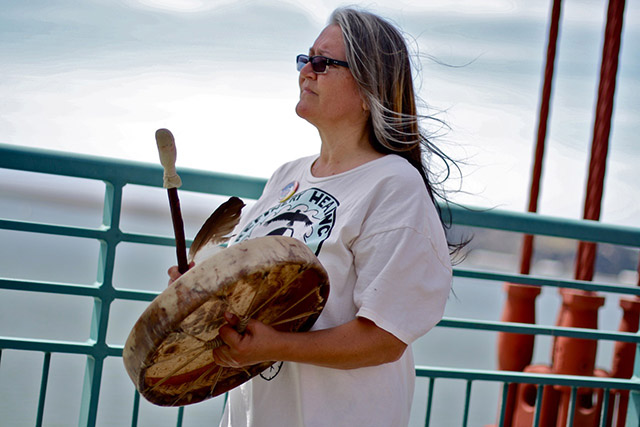
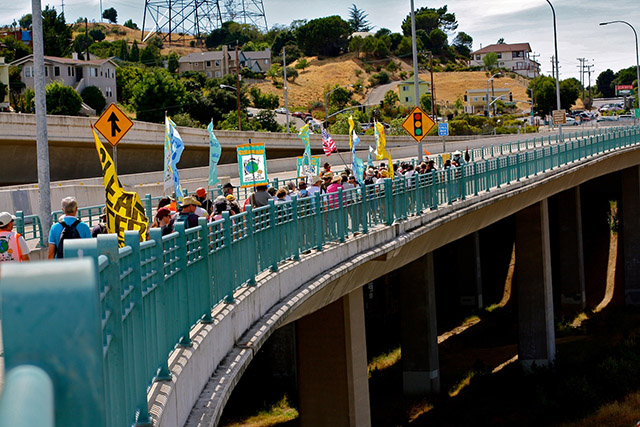
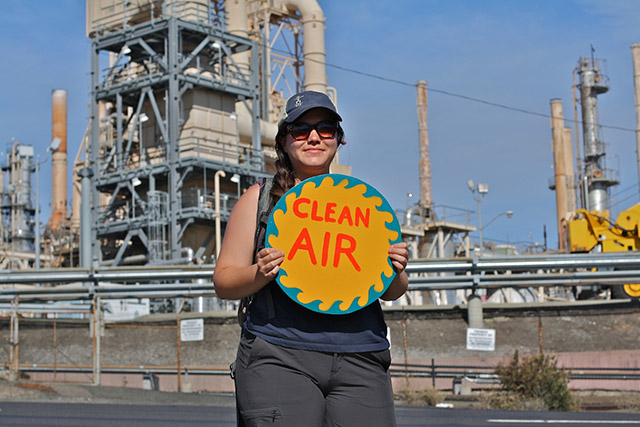


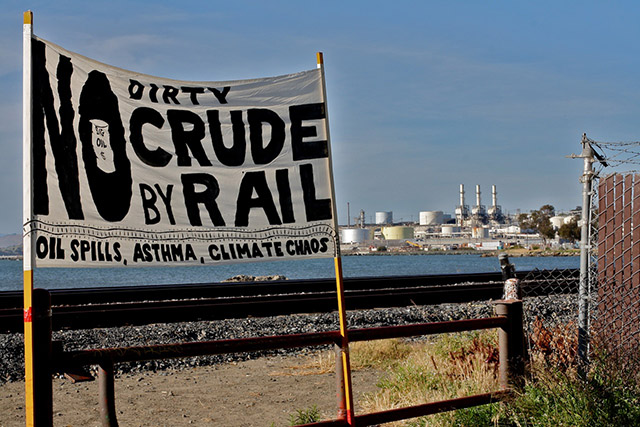
Join us in defending the truth before it’s too late
The future of independent journalism is uncertain, and the consequences of losing it are too grave to ignore. To ensure Truthout remains safe, strong, and free, we need to raise $50,000 in the next 9 days. Every dollar raised goes directly toward the costs of producing news you can trust.
Please give what you can — because by supporting us with a tax-deductible donation, you’re not just preserving a source of news, you’re helping to safeguard what’s left of our democracy.